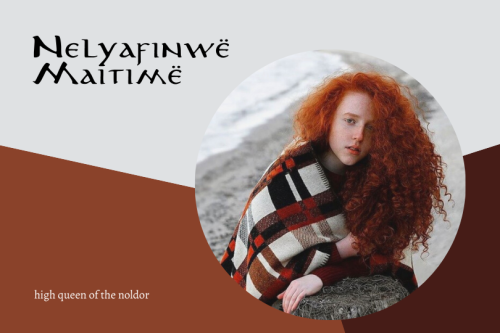arofili:@finweanladiesweek day seven | freeform: genderbending | maitimë and the ambarussatBut when
arofili:@finweanladiesweek day seven | freeform: genderbending | maitimë and the ambarussatBut when they were landed, Maitimë the eldest of her children, and on a time the friend of Findekánë ere Morgoth’s lies came between, spoke to Fëanárë, saying: ‘Now what ships and rowers will you spare to return, and whom shall they bear hither first? Findekánë the Valiant?’Then Fëanárë laughed as one fey, and she cried: ‘None and none! What I have left behind I count now no loss; needless baggage on the road it has proved. Let those that cursed my name, curse me still, and whine their way back to the cages of the Valar! Let the ships burn!’Then Maitimë alone stood aside, but Fëanárë caused fire to be set to the white ships of the Teleri…—The Silmarillion, “Of the Flight of the Noldor” (text altered)…she went to the ships and set them all aflame; and the dark sky was red as with a terrible dawn.[…] In the morning the host was mustered, but of Fëanárë’s seven children only six were to be found. Then Ambarussa went pale with fear. ‘Did you not then rouse Ambarussa my sister (whom you called Ambartë)?’ she said. ‘She would not come ashore to sleep (she said) in discomfort.’ But it is thought (and no doubt Fëanárë guessed this also) that it was in the mind of Ambartë to sail her ship back afterwards and rejoin Nisdanor, for she had been much shocked by the deed of her mother.‘That ship I destroyed first,’ said Fëanárë (hiding her own dismay).‘Then rightly you gave the name to the youngest of your children,’ said Ambarussa, ‘and Umbartë “the Fated” was its true form. Fell and fey are you become.’ And after that no one dared speak again to Fëanárë of this matter.—The History of Middle-earth: Volume XII: The Peoples of Middle-earth, “The Shibboleth of Fëanor” (text altered) -- source link
Tumblr Blog : arofili.tumblr.com
#maedhros#ambarussa#graphic#mc anna


